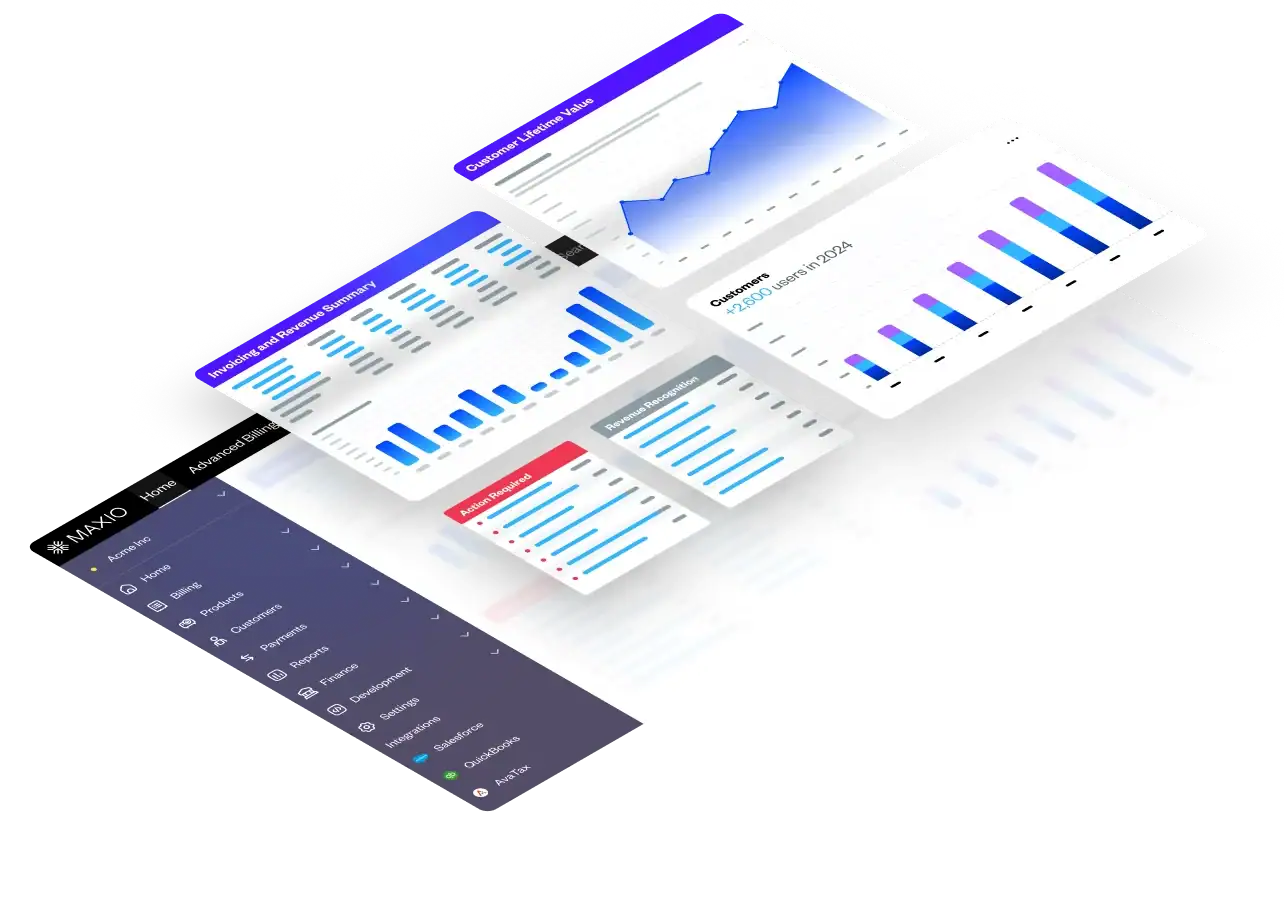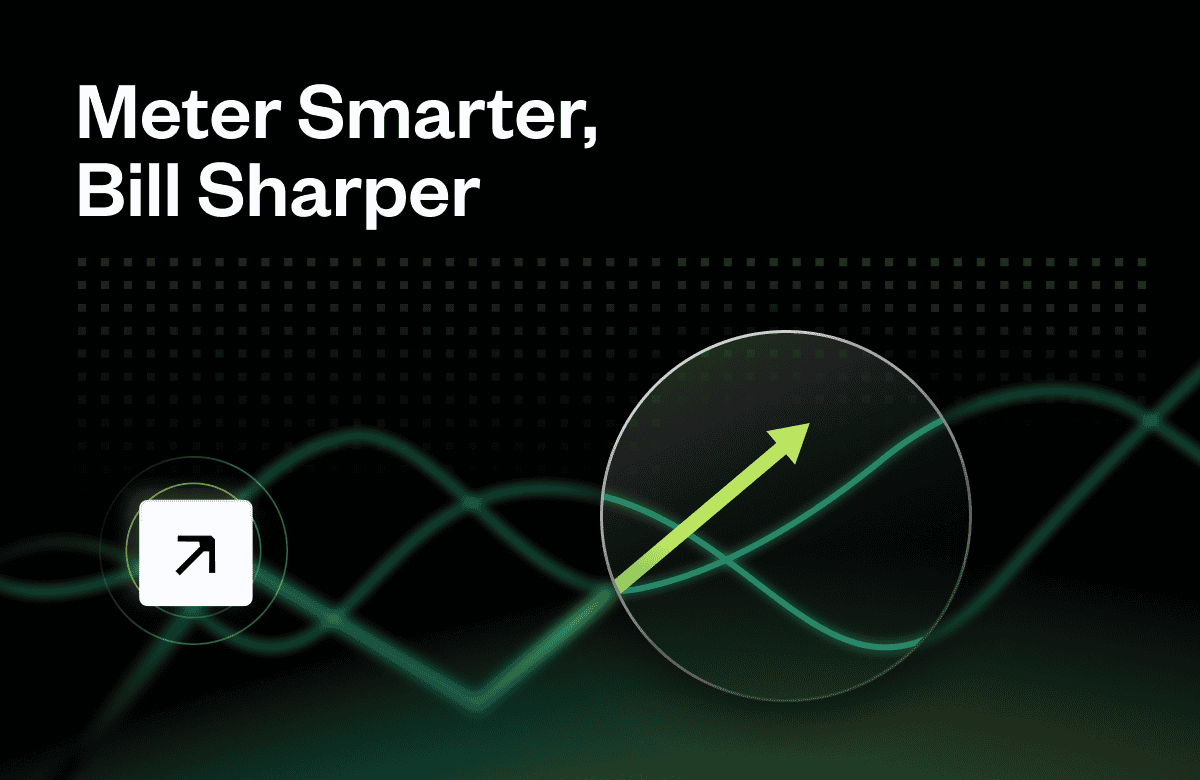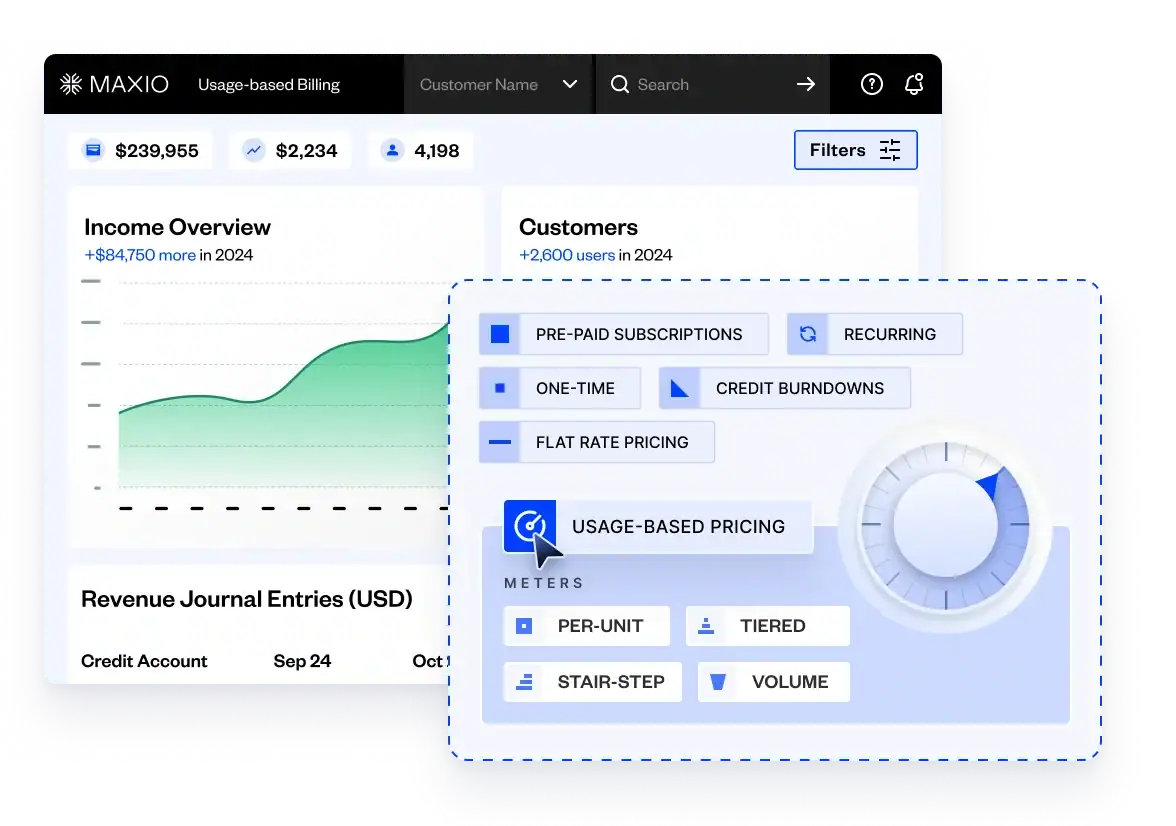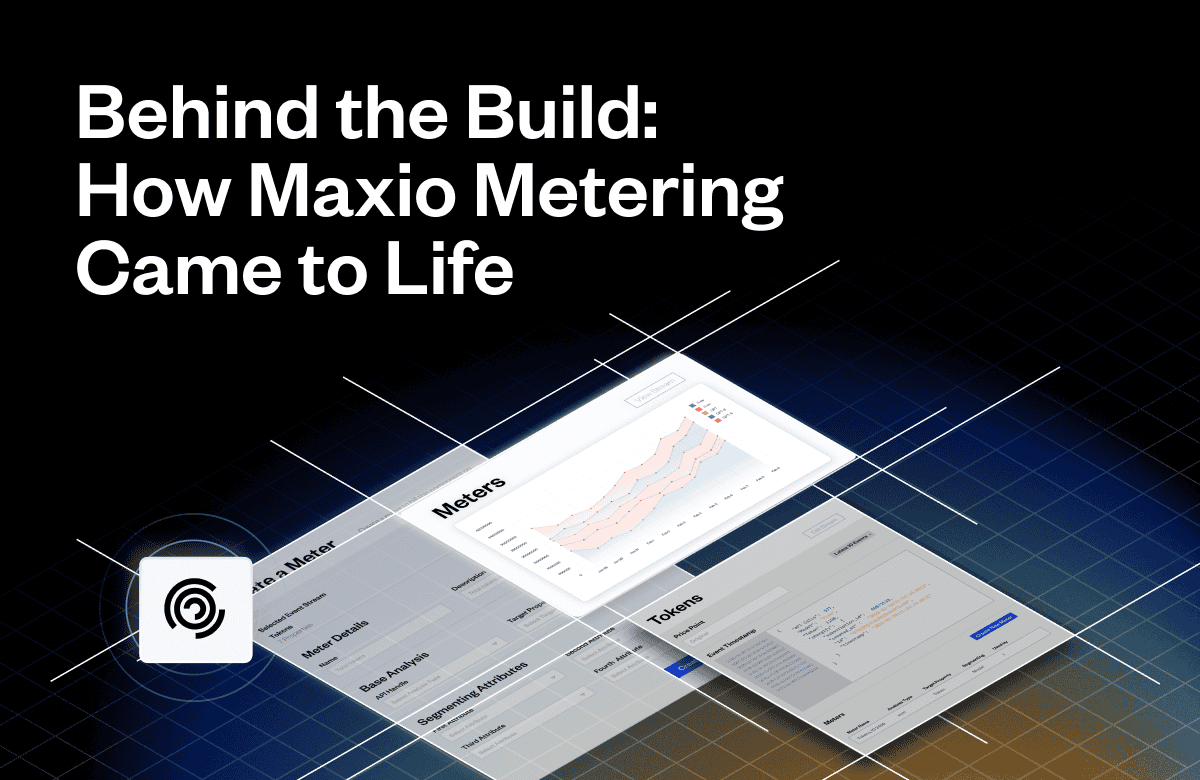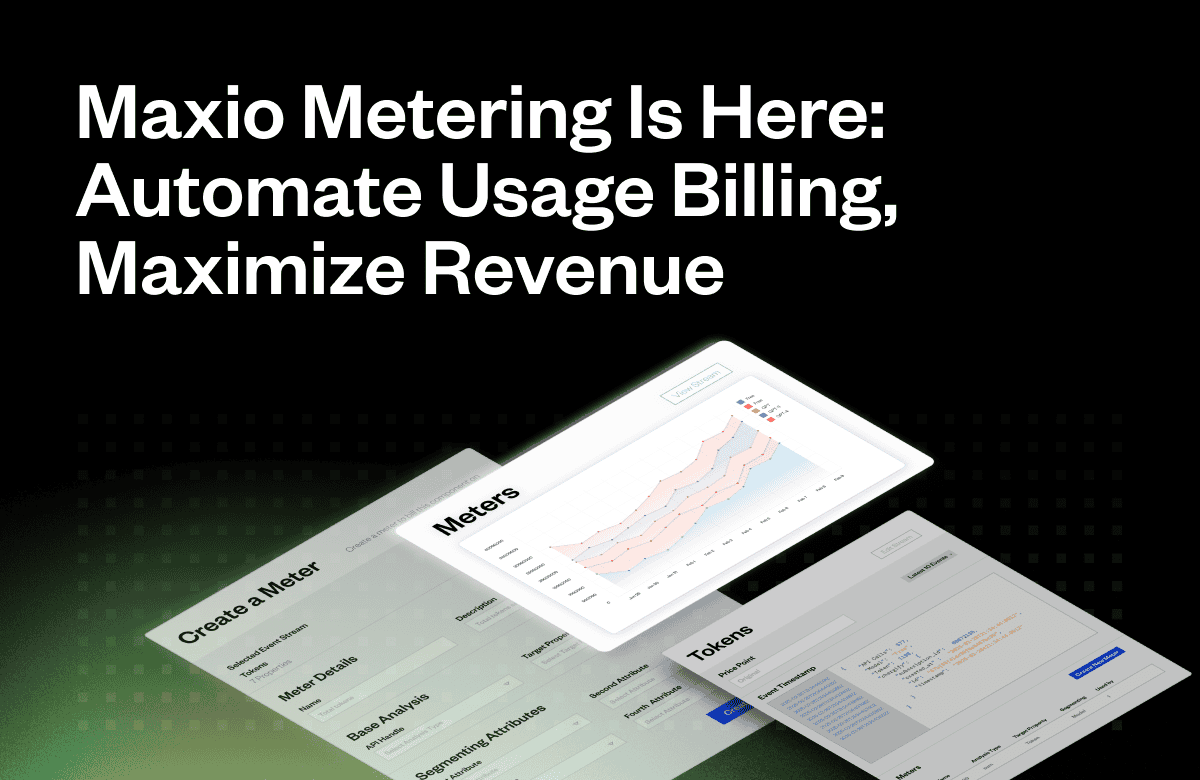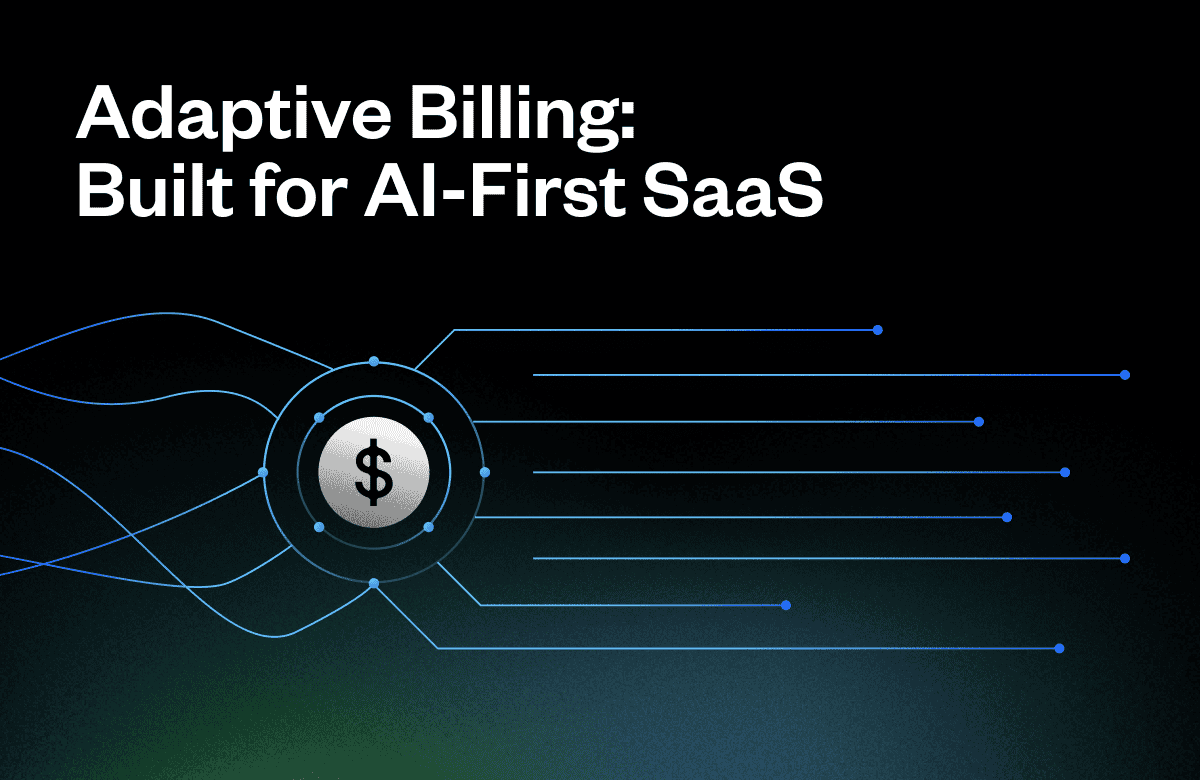AI is the Future — But Billing for It Feels Stuck in the Past
Generative AI is changing everything. From how we write emails to how we code software, LLMs are rapidly being embedded into every layer of modern SaaS products. But with innovation comes complexity — especially when it comes to pricing and billing.
AI companies don’t charge by the month. They charge by the millisecond, by the token, by the prompt. Some apply regional surcharges, others vary pricing by model tier. It’s precise, usage-based, and often deeply custom.
And most billing systems? They weren’t built for this. Traditional subscription billing tools can handle “$99/month” just fine, but start to fall apart when you need to invoice based on the number of API calls, the total tokens consumed, or the version of model a user selected.
That’s where Maxio Metering comes in.
Meet NamelessdotAI
To bring this to life, let’s imagine NamelessdotAI — a fictional generative AI platform designed to help B2B SaaS marketers do their best work.
NamelessdotAI lets marketers generate product messaging, campaign concepts, launch copy, and more — all powered by large language models. Its business model is usage-based, and it charges customers based on:
- The number of prompts submitted
- Whether the user selected a Standard or Turbo model
- Where the request originated geographically (e.g. US vs. UK)
This flexible pricing strategy gives customers more control — but it creates real challenges for the finance and product teams behind the scenes.
Why Traditional Billing Systems Can’t Keep Up
NamelessdotAI’s pricing model breaks traditional billing tools in three ways:
- No granular tracking. Legacy systems can’t track tokens, query types, or model versions without heavy customization.
- Manual overhead. Finance teams resort to spreadsheets, scripts, and elbow grease to reconcile usage and generate invoices.
- No experimentation. Product managers are stuck waiting on engineers every time they want to test a new pricing lever.
The result? Missed revenue, poor scalability, and internal frustration.
Enter Maxio Metering: Purpose-Built for Dynamic Usage
Maxio Metering was built for exactly this kind of complexity. It lets companies like NamelessdotAI:
- Ingest real-time usage events (e.g. a prompt submission)
- Track usage across any number of dimensions
- Layer pricing logic on top of event streams
- Apply that pricing to customer subscriptions, automatically
What used to take weeks of engineering effort can now be configured directly by a product or finance lead.
See It In Action: How NamelessdotAI Configures Maxio Metering
Here’s how NamelessdotAI set up usage-based billing in Maxio, step by step:
Step 1: Set Up the Product Catalog
In the Maxio UI, the team creates a new product entry called “NamelessdotAI.” This forms the base product that all usage and pricing components will attach to.

Step 2: Create the Event Stream
Every time a user submits a prompt, NamelessdotAI sends an event. This includes metadata like:
prompts_submittedmodel_tierregionsubscription_id
The team creates an event stream called Prompt Submissions and links it to customer subscriptions using subscription_id.
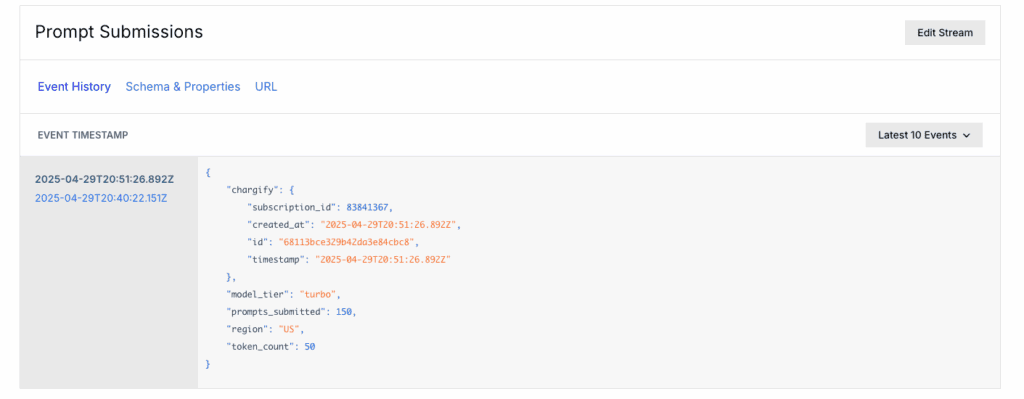
Step 3: Define Meters for Usage Tracking
Meters are created to track:
- Total prompt submissions (using prompts_submitted)
- LLM model used (model_tier: turbo)
- Region-based usage (region: uk)

Step 4: Create Metered Components for Pricing
Each meter is attached to a metered component in the product catalog. For example:
- Prompt Submissions: $0.02 per prompt
- Segment Rate: $.03 for Turbo prompts submitted in the US
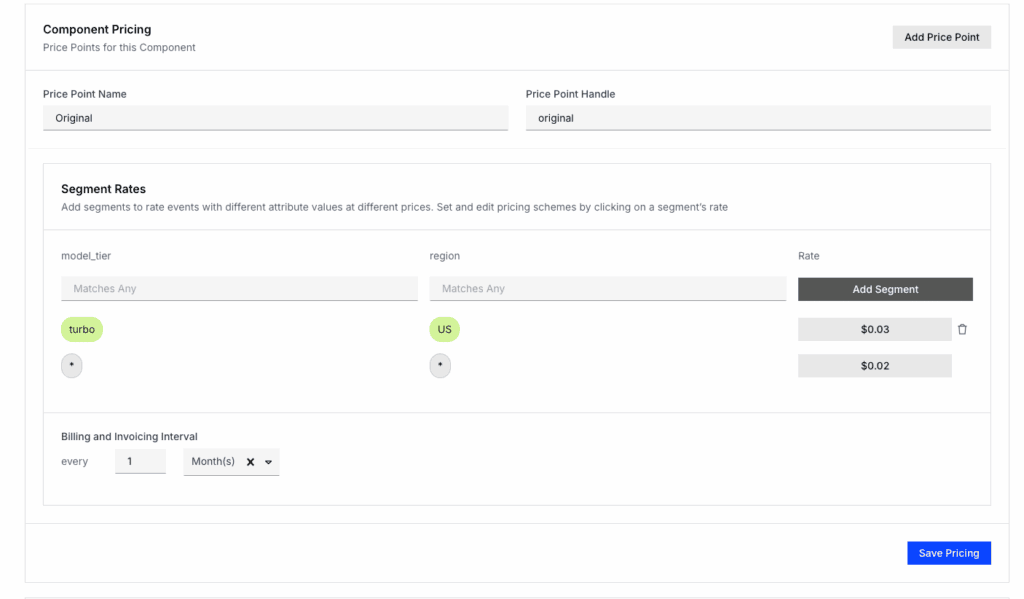
Step 5: Assign Components to Subscriptions
The finance team then assigns these components to each customer subscription. This links real-world usage to real billing configurations.
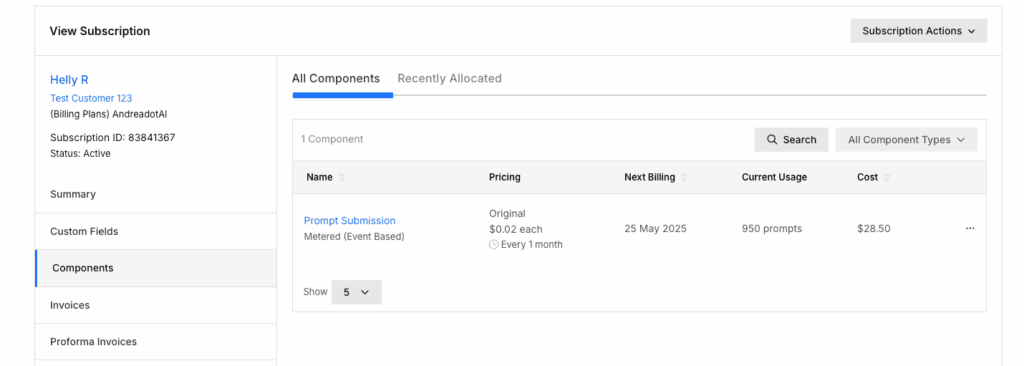
Step 6: Send Usage Events via API
With everything configured, NamelessdotAI begins sending usage events using a simple API call to Maxio Metering. These events are processed, metered, and billed automatically.

Step 7: Generate Invoices with Full Usage Breakdown
At the end of the billing period, Maxio generates a fully itemized invoice that breaks down charges by prompt count, model tier, and geography. Finance can preview pro forma invoices at any time.

Why This Matters
Maxio Metering gives NamelessdotAI’s finance and product teams the flexibility they need to keep pace with product evolution and customer demand.
- Finance teams get clean, audit-ready invoices with accurate usage data
- Product managers can launch and iterate on pricing experiments without dev time
- Engineering can stay focused on building product — not hacking billing workarounds
For modern SaaS companies with usage-based pricing, Maxio Metering turns billing from a bottleneck into a strategic enabler.
Ready to see what it looks like in your business?
